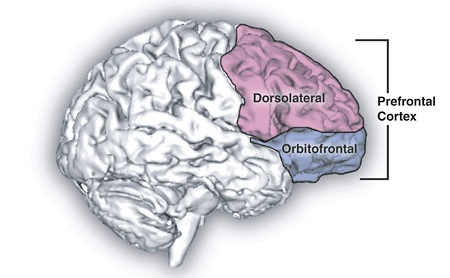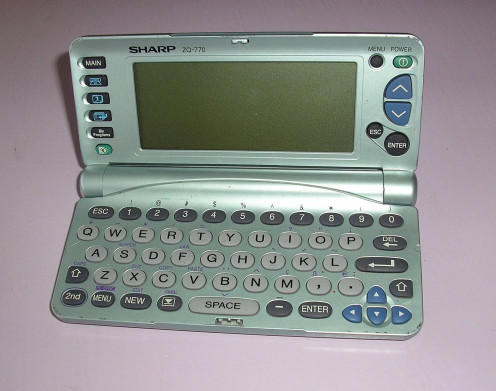Understanding Executive Functioning

By Michelle Liew Tsui-Lin
When I first heard the words "executive functioning", the first image that came to my mind was of a boardroom of efficient executives meeting deadlines with speed.
Indeed, the term Executive Functioning does have a lot to do with organization, though not in a way we would expect.
It's also a phenomenon that's close to my heart, because my own executive functions aren't so efficient.
Being the inconveniencing condition that it is, there certainly needs to be a way to get a sense of and manage it.

Definition
Executive Functioning is an umbrella term describing a set of cognitive controls that enable us to organize, remember, solve problems and fulfill tasks.
Good Executive Functioning also means having the ability to be flexibility with tasks and quite importantly, to pay attention to them.
This, implies, too, that Executive Functioning enables us to perform well in our jobs or simply run everyday errands.
Which of these do you find yourself suffering from?
Characteristics
Poor Executive Functioning is prevalent in a large proportion of many school going children and some adults who have never been previously diagnosed with it. Though there are many other conditions that fall under the umbrella of executive functioning, they all share these characteristics in common.
Executive Functioning Disorders are Characterized by the following symptoms:
Difficulty setting goals
Those who have difficulties with Executive Functioning processes often have enormous difficulties setting goals. Often not having the end in mind, they have trouble progressing towards it.
Difficulty taking initiative
People with poor Executive Functioning often don't want to take the lead in projects, and if they do, have trouble organizing and pulling them together. They often need development in leadership skills.
Motivated by the present
Those lacking in Executive Functioning skills often don't think forward and live very much in the present. For them, living in the present is very much living in their own worlds. They don't reflect on consequences, mistakes of past experience or plan for the future.
Difficulty adapting to change
People with poor executive functions find it very hard to accept change. They are either too impulsive or rigid, veering between both extreme emotions. They also employ the same strategy to solve problems, even if that has been proven ineffective, and have trouble pausing to reflect on the right one to use.
Poor sense of individuality
Being present minded, such individuals find it hard to explain what they stand for or what they believe in. They are comforted by the results of the moment.
Poor emotional management
Sufferers of poor Executive Functioning have extreme difficulty managing their emotions. Their moods fluctuate and they may act out feelings without being able to identify them. They tend to assign blame to external factors or others without any sense of personal responsibility.
Difficulty empathizing
People with poor executive functions have difficulty empathizing, developing helicopter views or seeing things from different perspectives.

Warning signs of having poor executive functions are....
- having difficulty planning projects
- having difficulty initiating tasks
- having difficulty retaining information
Warning signs of poor executive functions
Signs of poor executive functions may not be obvious on the outset. They manifest themselves in children, but may remain until they reach adulthood. it's easy to confuse these signs with symptoms of stress or sheer rebellious tantrums. However, these are signals of poor executive functioning if they show themselves repeatedly.
Difficulty planning projects
A chld or adult who has repeated failure planning projects has poor organizational abilities, a sign of weak executive functioning.He also has immense difficulty estimating how long a project takes to complete.
Such an adult will also have difficulty telling stories. Telling stories requires sequential skills, which a person lacks if he has poor executive functions. Putting a story together requires memorization of facts, which a person whose executive functions aren't strong will find very hard to do.
Difficulty initiating tasks
if a child or adult procrastinates and finds it hard to start a task , it is a sign that he has weak executive functions. Dalliance reflects lack of ability to manage time.
Difficulty retaining information
With weak executive functions, a person would find it hard to retain information, particularly while he is doing something. For instance, he could forget that he has his keys even while opening the door.
Understanding Executive Functioning
Causes
Executive Functioning can be inherited. People can be born with poor executive functions. Those who have had surgery performed on the brain's prefrontal cortex or damage to it may experience this disorder.
Those who have Alzhimer's Disease, or strokes may have poor executive functions.
Types
Executive Function is the broad term that includes psychological disorders like depression, Attention Hyperactivity Deficit Disorder (ADHD) and learning disabilities may have difficulties with organization, prioritizing or managing their emotions.
You cope better with weak executive functions if you...
- Break tasks down
- Use visual aids and other tools
- Ask for written directions
- Take short breaks
- Organize your space
Coping
As a person whose executive functions have been a little disrupted because of brain tumor removal, I empathize with those who have the same, potentially debilitating condition. It can be frustrating to be completely normal in intelligence yet constantly lose something as important as your keys.
If you suspect poor Executive Functioning, take heart, because it does not have to hamper progress. Coping strategies, though, are much needed.
Break tasks down
Daunting tasks can be broken into smaller, manageable ones and the pieces put together in a completed project. Seek help from colleagues, friends or loved ones who can assist if it's hard to know where to begin with the task.
Use visual aids and other tools
If having many tasks to complete overwhelms, use visual aids. Visual representation helps greatly in organizing information into categories and memorizing tasks.
Tools like organizers, computers, or watches with alarms can help greatly in organizing, storing important information or tracking time.these should be constantly reviewed.
Ask for written directions
Ask for written directions with oral instructions whenever possible.
Take short breaks
Plan and structure transition times and shifts in activities to put less stress on organization or memory.
To improve time management:
Organize your space
To better manage space and keep things from getting lost, minimize clutter. Consider having complete sets of supplies for different activities and always leave them in specific places. Schedule a weekly time to clean and organize the work space.

Conclusion
Poor Executive Functioning may inconvenience, but does not have to debilitate.
Original work by Michelle Liew Tsui-Lin
Other health articles by Michelle Liew Tsui-Lin
- Eczema-symptoms, causes and coping:my husband's expe...
Eczema is a skin condition that causes a lot of discomfort. What are its causes, symptoms and how do we cope with it? - How to use music to reduce or stress levels:listenin...
An article on how music can relieve stress and some stress busting music tracks. - The benefits and disadvantages of our favorite desse...
On the benefits and disadvantages of ice-cream, and an epulaeryu poem. - The wonderful qualities of the monk fruit
Blurb: On the cooling effect of the Monk Fruit. - The benefits of chocolate, myths and a poem
On the benefits of chocolate, why we love chocolate, a few chocolate myths and an epulaeryu poem. - A Wonderful Expression - the importance of smiling a...
A hub on the social and health benefits of a good smile - we should all smile more often! - The wonderful health benefits of the chiku fruit
All about the the Chiku Fruit





